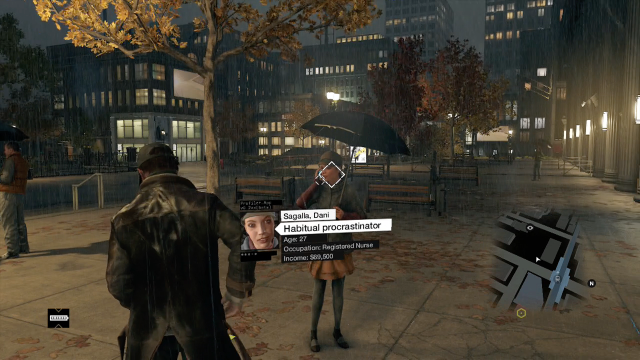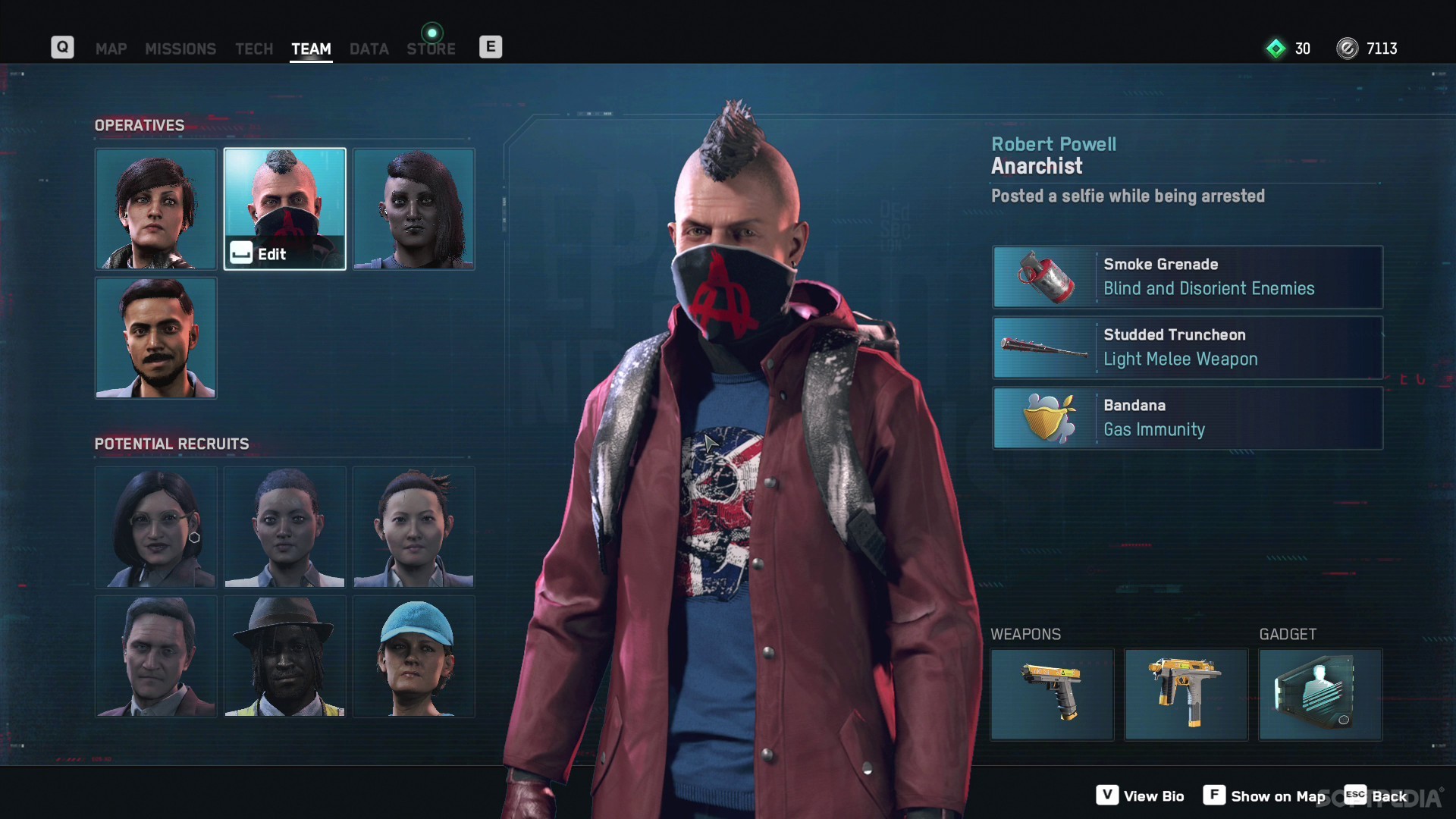
The overall track record of the individual Watch Dogs stories was very average, never overly bad, but never outstanding either. There was a movement towards satire and light hacktivism with each game, and Watch Dogs 2 never took itself too seriously. This idea is further strengthened by Watch Dogs: Legion’s shift in the story to a future surveillance state filled with caricatures of London. Legion’s world and characters are all charismatic rebels pitted against a comically villainous leader of a private militia.
Watch Dogs is in a unique position this year for a number of reasons, but especially from a narrative standpoint. With no fixed protagonist, but multiple playable protagonists, Watch Dogs: Legion’s story needs to be particularly adaptable to all characters and settings. The city of London depicted in the game struggles under extraordinary circumstances, which means the story doesn’t treat all players equally.
Pro: Not Taking Itself Too Seriously

To be honest, the best thing that happened to Watch Dogs in general was that the story didn’t take itself too seriously. The first game set the precedent for being a full-blown revenge tale, with Aiden Pearce avenging his dead niece and rescuing his sister from an assassin from his past. Many criticized the first Watch Dogs’ plot as it didn’t quite fit with the gameplay, either from Aiden’s perspective or the player’s. Watch Dogs 2 fixed this issue by adopting a cheesier, more lighthearted story that supported Grand Theft Auto-esque gameplay. Now, Watch Dogs: Legion is aiming to do the same with its crazy playable characters and charismatic story of rebellion against oppressive martial law.
The overall plot of Watch Dogs: Legion deals with relatively serious themes, but seems plausible only from a realistic point of view. In a way, this is an original approach to the story, where the player experiences a rebellion born from a group of clever hackers in DedSec. Each member of DedSec in Legion is a charismatic yet vocal opponent of the oppressive Albion militia that has taken over London. These characters do not seem unrealistic, since in many ways they reflect modern world politics and people’s attitudes towards them. Moreover, martial law and systematic oppression of citizens are enough reasons to justify the variety of violent gameplay that Watch Dogs: Legion emphasizes.
The Problem of Leveraging Gameplay with Story

Watch Dogs Legion has multiple playable protagonists, but this presents a problem – there is no central anchor point for players to grab onto and become attached to. While many gamers have their favorite video game protagonists, not having a static playable character is something video games have missed out on at a mainstream level for a long time. Watch Dogs Legion suggests that not only is this unimportant, but that narrative takes a backseat to much of the gameplay anyway. Whether or not this is true, the game heavily promotes the destruction of Albion as the primary goal of Watch Dogs Legion players.
Assuming Watch Dogs Legion takes a Grand Theft Auto-like approach, that could have a significant detrimental effect on the story the game is trying to tell. Each character is playable and has their own backstory, so writing about multiple people would be a significant amount. Even if every character in the game fell into the same conflict as the Rebellion, the impact of each character’s backstory would be lessened considering they all reach the same conclusion that they hate Albion because tyranny is bad, etc., arguably at the expense of the nuance and justification of each character’s actions.
Con: Legion’s Story Could Take an Unfortunate Backseat

Ultimately, it may not matter if the gameplay is good enough, but that’s something Watch Dogs has struggled with thus far. The aforementioned plot of Watch Dogs 2 revolved around Marcus Holloway, a ruthless and charismatic hacker, as the protagonist, but the gameplay didn’t quite reflect that. One of the biggest criticisms of Marcus as a protagonist was the lyrical dissonance between his personality and the violent gameplay he could take part in. This may not necessarily be an issue with Watch Dogs: Legion, but removing this dissonance means that all characters have violent tendencies. Even if players avoid confrontations and prefer stealth/non-lethal play, the game will have to exploit this against players who want to play with weapons drawn.
This is a problem for both, because the game doesn’t really favor this type of player. On the surface, Watch Dogs: Legion seems to build this big, fascinating world full of unique characters. Upon closer inspection, it risks seeming empty, as all of these characters share a desire to defeat the oppressive militant forces occupying London. In theory, each character should have a personal reason to join the resistance, but the game needs to justify those emotions. Grand Theft Auto 5’s single-player mode is character-centralized for this very reason. The game was self-aware enough to stand on its own in gameplay, but also tailored character personalities to fit the level of violence the player was capable of.
Watch Dogs Legion’s story will be interesting to follow, as it hits a problematic middle ground between story and gameplay. If Legion’s gameplay were truly strong enough to stand up regardless of the story, it wouldn’t be an issue. But the impact of this story may be undermined, as the Watch Dogs games have always sought to tell a compelling story about rebellion.

Leave a Reply